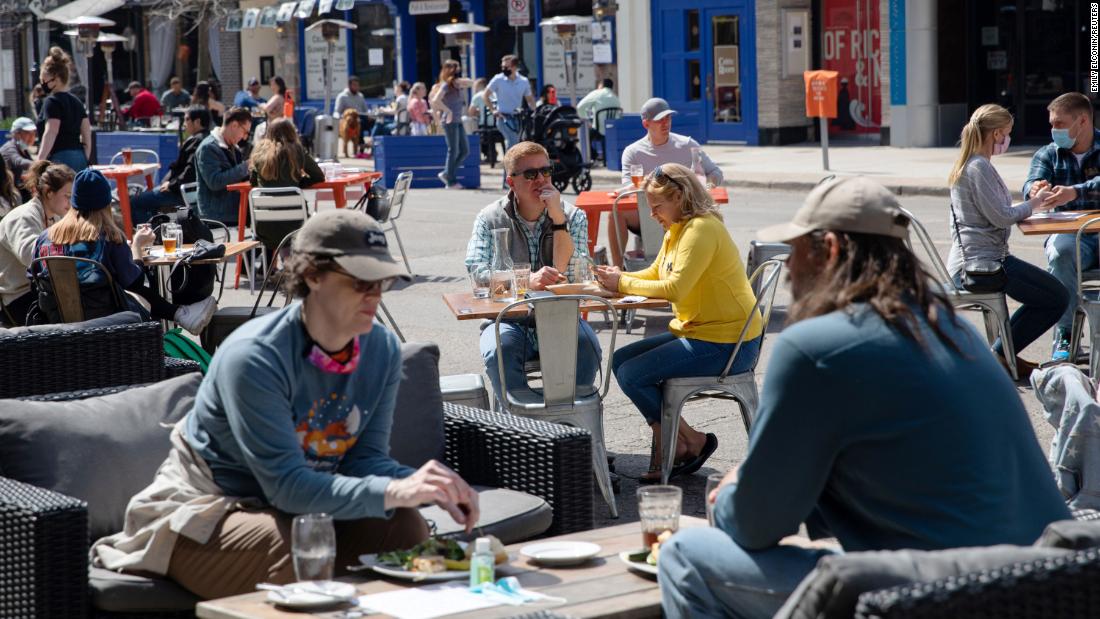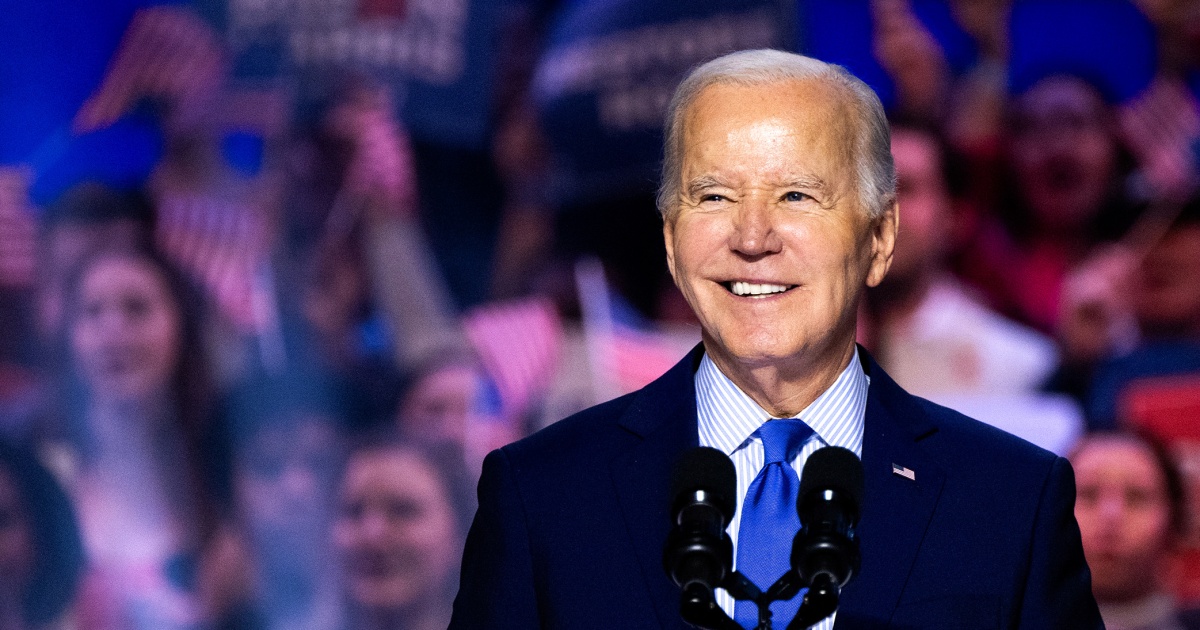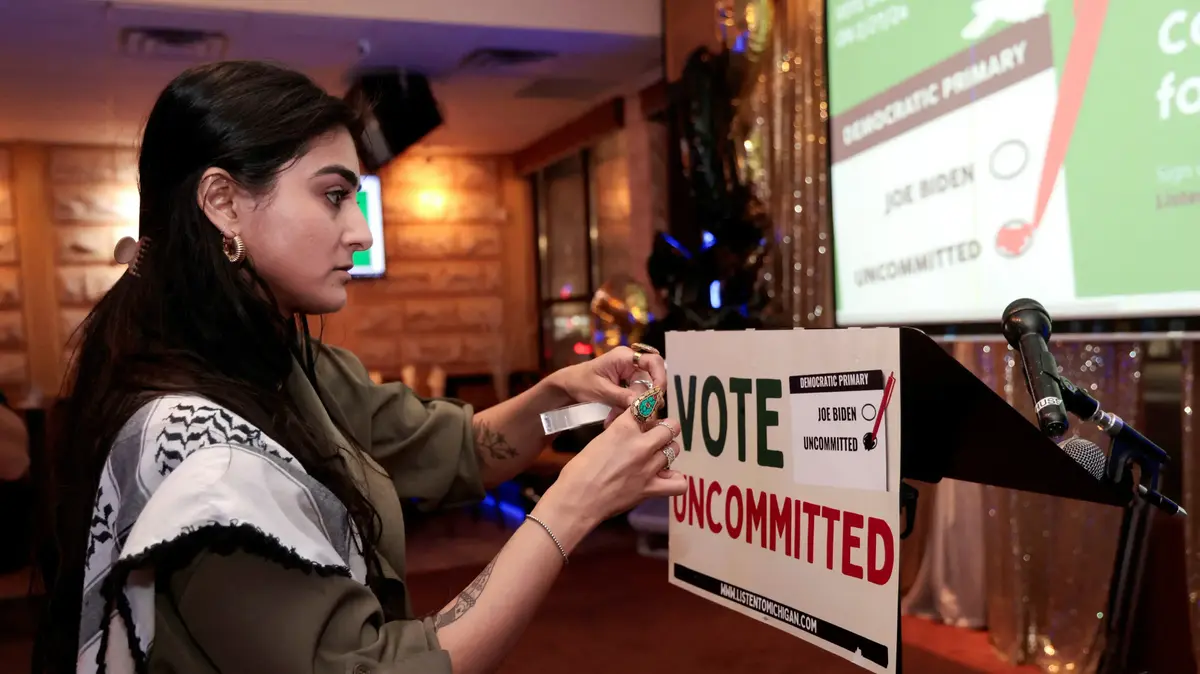Dr. Huerta: Variants of covid-19 put vaccines at risk 3:59
(CNN) -
As the United States rushes to vaccinate more Americans, Covid-19 cases and hospitalizations are on the rise, predominantly among younger people who have not yet received the vaccine.
Some experts worry this is just the beginning of things to come in the next few weeks.
Michigan is already in the midst of a violent wave, and one epidemiologist says other states should pay close attention.
"Michigan really is the benchmark for what it looks like when variant B.1,1.7 ... spreads in America," Dr. Celine Gounder told CNN on Sunday.
"It is causing an increase in cases and it is causing a more serious illness, which means that even the youngest people, people in their 30s, 40s and 50s are getting seriously ill and being hospitalized for this."
Variant B.1,1.7, first detected in the UK, is now the dominant strain of the virus in the US, experts say it is more contagious, can cause more serious illness and can potentially be more deadly .
And it is spreading rapidly throughout the country.
Florida has the highest number of cases of the variant, followed by Michigan, Minnesota and Massachusetts, according to data from the US Centers for Disease Control and Prevention, CDC.
advertising
The variants of coronavirus force changes in vaccines.
What are the FDA recommendations?
Infections due to covid-19 variants increase in the US 0:44
Michigan is 'on fire' from covid-19
The surge in covid-19 cases in Michigan is a combination of two factors, Gounder says: the spread of variant B.1,1.7 combined with people relaxing on mitigation measures before enough residents are vaccinated.
And while some officials, including Michigan Gov. Gretchen Whitmer, are trying to make a case for the federal government to increase vaccines to the state, Gounder says that won't help in this case.
Here's why: It takes about two weeks after the second dose of Pfizer and Moderna and about two weeks after the Johnson & Johnson vaccine before people are immune, he said.
Meanwhile, Gounder added, "the incubation period, which is the time from exposure to infection with the coronavirus, is four to five days."
"So there is no way that an increase in vaccination will help stop this when transmission is happening right now," he said.
"The harsh truth is that the only thing that will stop the transmission at this time are the measures that take effect immediately."
For example, dressing up, not dining indoors and socializing outdoors, he added.
Michigan is now reporting thousands of new covid-19 cases daily, when just a few weeks ago, state data showed the daily count of reported cases was as low as 563 cases.
In one part of the state, emergency room physician Dr. Rob Davidson told CNN that hospitalizations have "quadrupled in the last two weeks."
"Hospitals are flooding," Dr. Jonathan Reiner, professor of medicine and surgery at George Washington University, told CNN.
"Michigan Needs to Close".
But he added that the government should send more vaccines to the state.
The pharmaceutical laboratories will inform if a vaccination booster is necessary to cover the variants
UK seeks to speed up vaccines for 0:47 variants
“Think of it this way: Every year during fire season, when wildfires get out of control, we don't let the states manage it to the best of their ability.
We increased firefighting forces in those states.
So Michigan is on fire now.
And we have to get that out, ”he said.
Other state leaders are alarmed
But it's not just Michigan.
Minnesota health officials warned that the state was experiencing a "sharp increase" in COVID-19 cases, saying it is "more important than ever" to keep wearing a mask and physical distancing.
Ohio Governor Mike DeWine said the state was seeing an increase in COVID-19 cases, hospitalizations and ICU admissions and urged residents to get vaccinated to avoid another increase.
"This is a race," he said.
We are in a race.
And it's a life and death race.
In Pennsylvania, Governor Tom Wolf warned last week that the state was seeing an increase in cases and urged residents to "do their part and practice proven public health practices to keep each other safe."
Also last week, New Jersey Governor Phil Murphy expressed concern about the high number of COVID-19 cases in the state and what could happen in the future.
The variants of coronavirus force changes in vaccines.
What are the FDA recommendations?
Pfizer conducts vaccine trials in pregnant women and children 5:47
"That's why we continue to enforce things like our state mask mandate, especially for indoor activities where we know transmission is more likely," Murphy said.
"It is also the reason we are aggressively increasing the term of vaccine eligibility."
US Needs to Address Vaccine Questions, Expert Says
Some experts say the United States could overcome another potential surge in the coming weeks if Americans hold out a little longer and continue to apply safety measures while more of the population is vaccinated against the virus.
So far, about 35.9% of all Americans received at least one dose of the covid-19 vaccine, according to CDC data.
And about 21.9% of the population is fully vaccinated.
Among American adults, nearly 46% have received at least one dose of the vaccine and about 28% are fully vaccinated, the CDC said.
If vaccinations continue at current rates, the United States is likely to reach a milestone this week: vaccinating half of all adults with at least one dose of vaccine.
At the record rate at which the United States is administering vaccines, the country could reach the vaccination numbers needed to control the virus in the coming months, Reiner said.
"The way to do it is to vaccinate like crazy," he said.
Approximately 4.6 million doses were administered on Saturday, a new record for the number of reported doses administered in one day.
During the past week, more than 3.1 million doses of vaccine were administered each day on average, according to the CDC.
But there are challenges ahead.
“The last 20 to 30% will be the most difficult because many people in this country are still hesitant to get the vaccine.
We're seeing it across the country, ”said Reiner of George Washington University.
"We really need to get down to business, talk to people about their indecision and get shot at the guns."
"Because if we don't vaccinate that last 30% or so, we will still have to live with this virus for a long time."
- CNN's Anna Sturla contributed to this report.
Covid-19


/cloudfront-eu-central-1.images.arcpublishing.com/prisa/PLLMQZDHVVEMHBHGHSS4ZY4A2E.jpg)

/cloudfront-eu-central-1.images.arcpublishing.com/prisa/K5MEQYX754ZCFV3SALU5I2KWQQ.jpg)


/cloudfront-eu-central-1.images.arcpublishing.com/prisa/UA7QFUHVWEFO4P5F7BKC6FJXOY.jpg)

